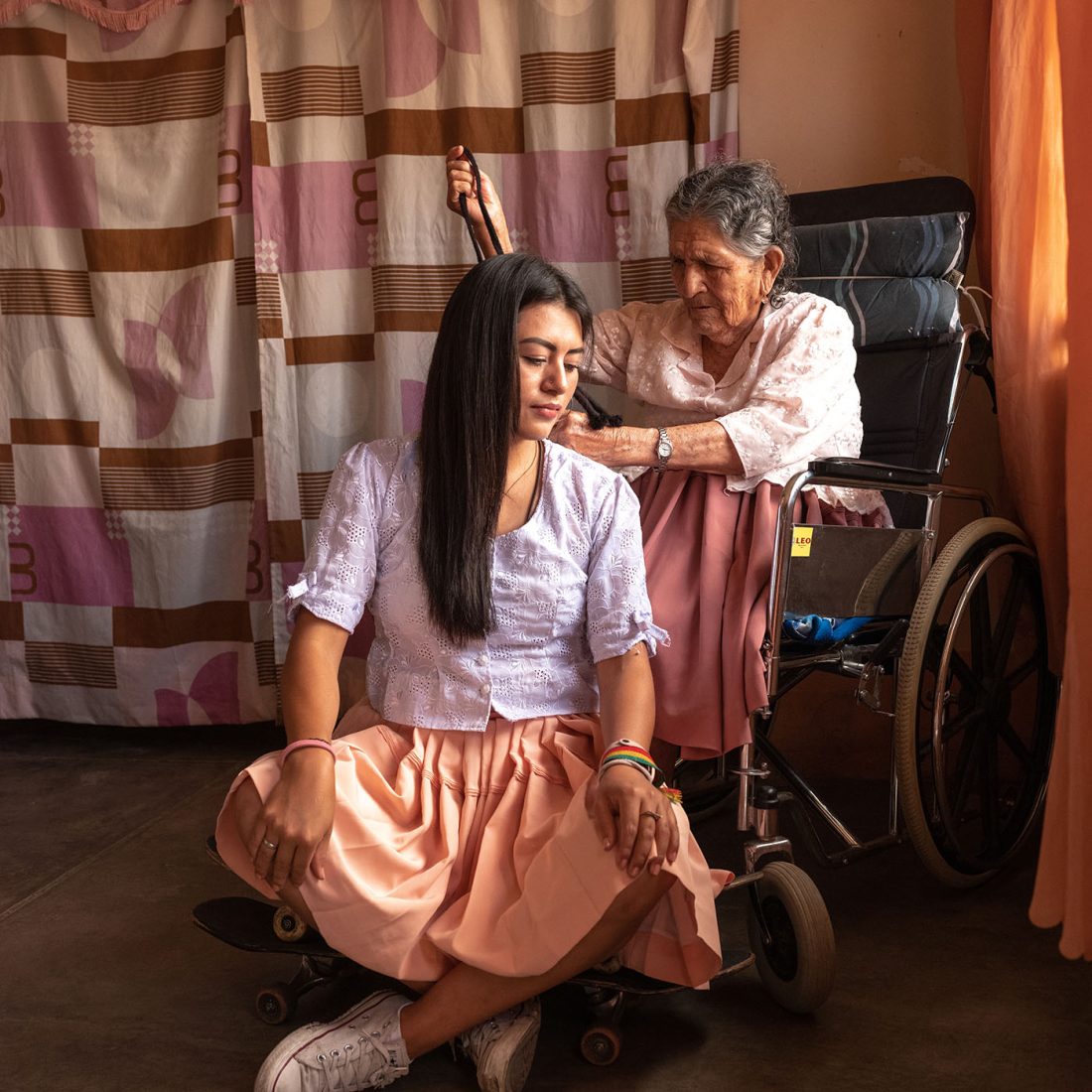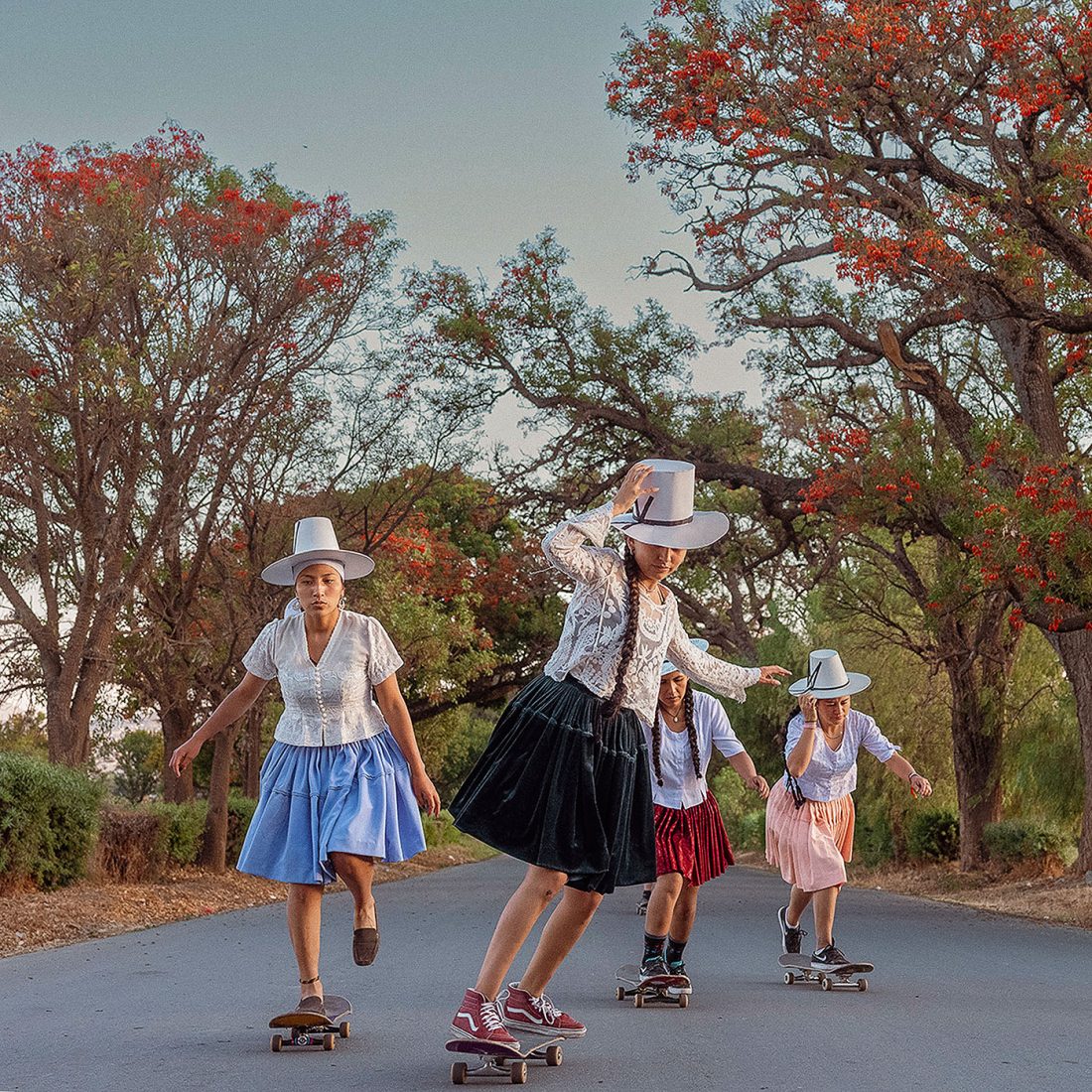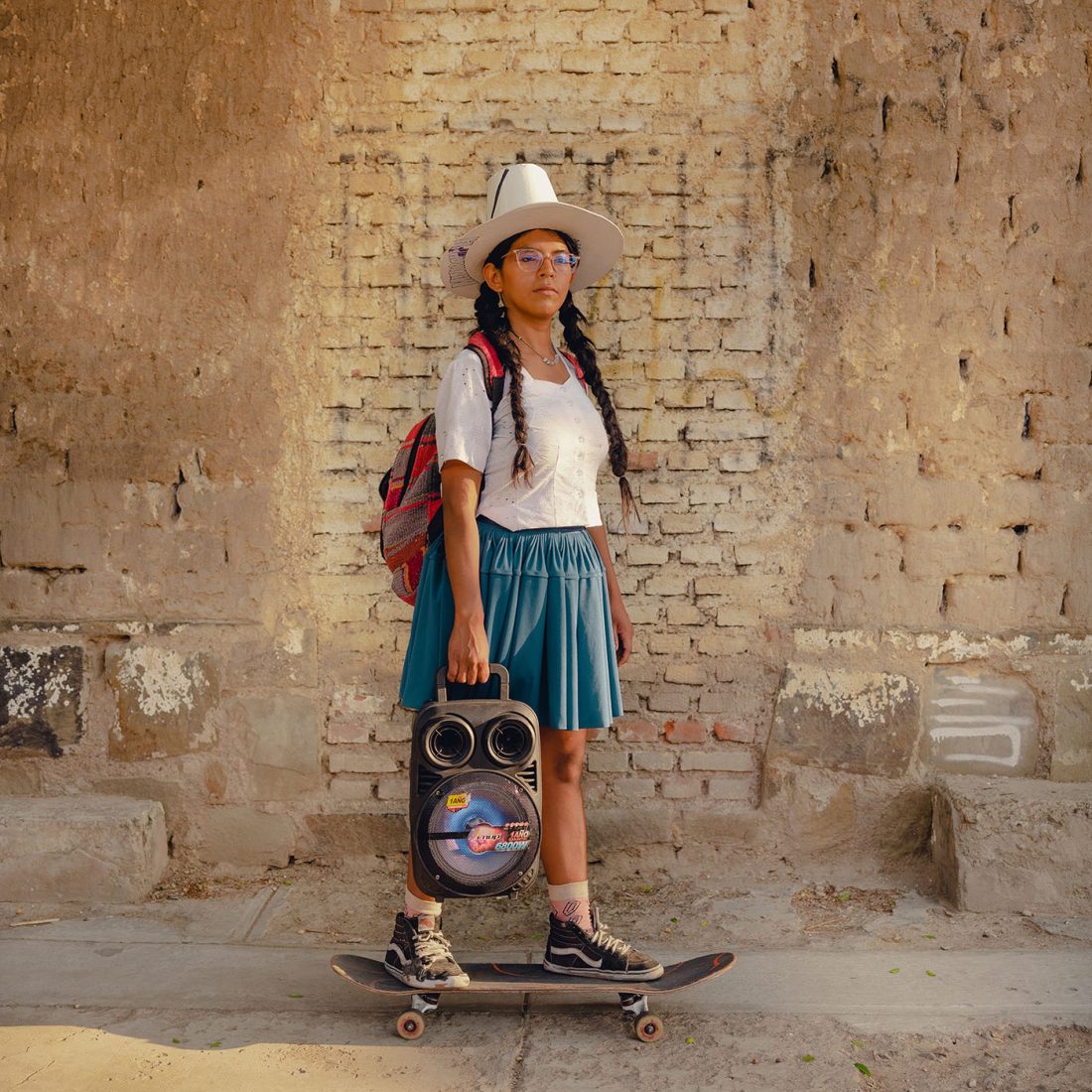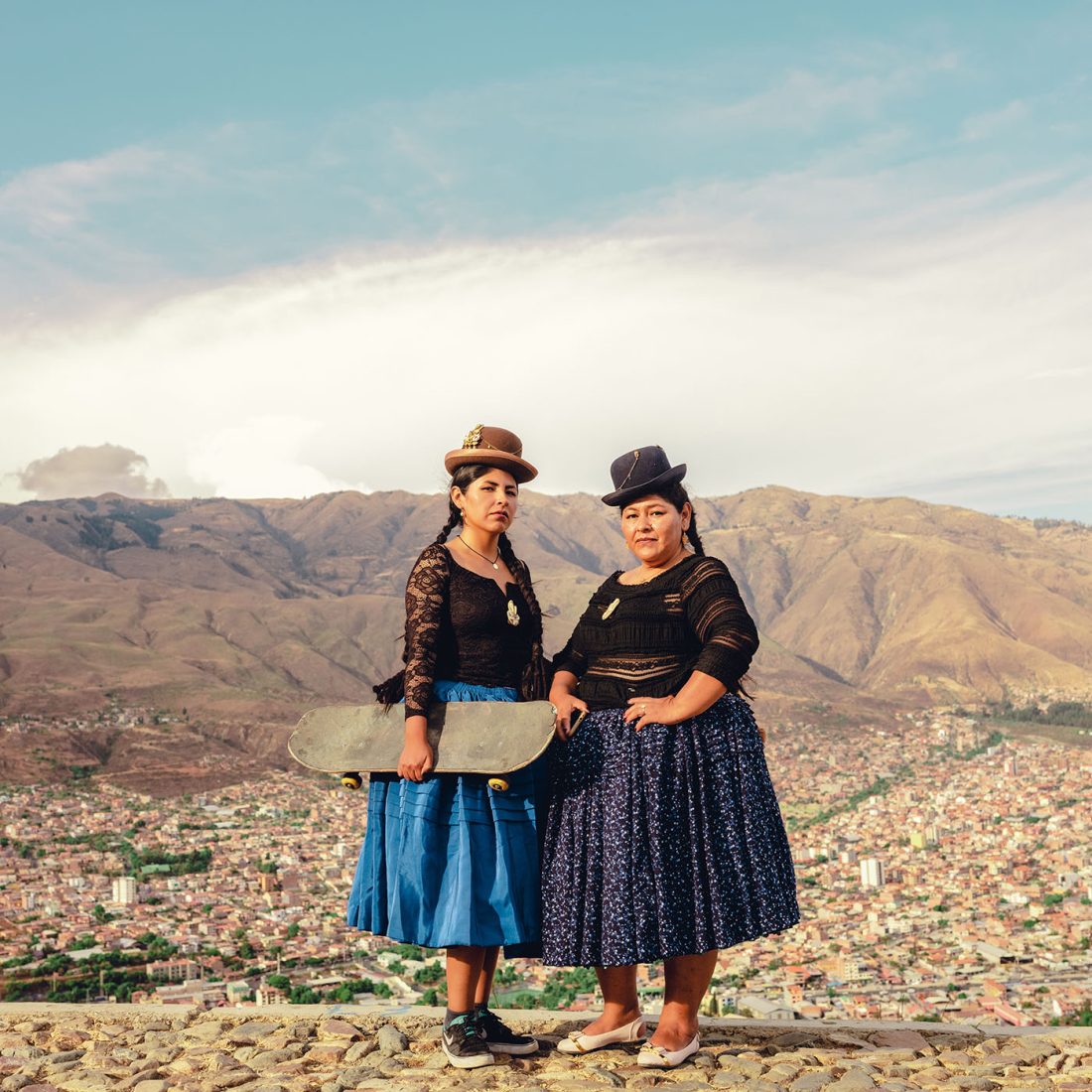The Bolivian ‘polleras’, bulky skirts commonly associated with the indigenous women from the highlands, were for decades a symbol of uniqueness but also an object of discrimination. Now, a new generation of women skateboarders in Cochabamba, the country’s third largest city, wears them as a piece of resistance. The voluminous attire has its origins in the Spanish conquest, in the 16th century. It was imposed on the native population, but through centuries the garment became part of the local identity. Since it symbolizes authenticity and stigmatization, dusting off the polleras that once belonged to aunts and grandmothers seemed the obvious choice for Dani Santiváñez, 26, a young Bolivian skater who wanted to reclaim her roots. She and two friends created in 2018 the female collective “ImillaSkate” “as a cry for inclusion”. ‘Imilla’ means ‘young girl’ in Aymara and Quechua, the two most widely spoken languages in Bolivia, a country where more than half of the population has indigenous roots. “We are no different, we all are indigenous descendants”, says Santiváñez referring to the nine women who are currently part of the group. They don’t wear the polleras on a day-to-day basis, but only for skating. Knee-length and paired with sneakers, as it happened in the past, the polleras adapted again and became a symbol. The imillas, who practice to compete in local tournaments, use this presence and their skateboards as a natural vehicle to empower women and push their message of inclusion and acceptance of diversity.




